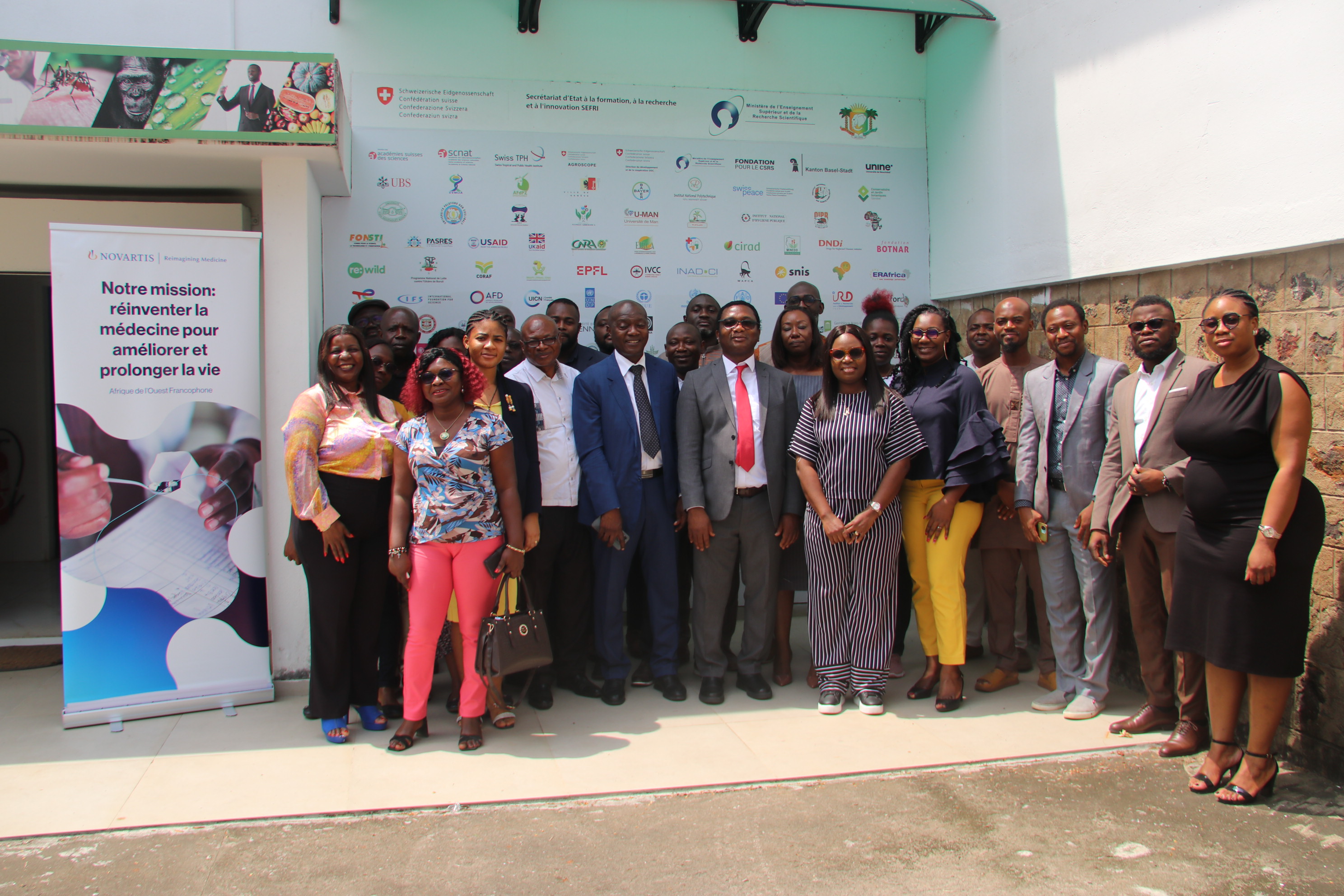News
Information meeting on the sickle cell anaemia project concerning early diagnosis and treatment of patients

Every year, an estimated 300,000 children worldwide are born with sickle cell anaemia (SS, homozygous form), the most serious form of the disease. Around 75% of these births take place in sub-Saharan Africa, and 50-90% of them die before their fifth birthday.
In sub-Saharan Africa, a child dies of this disease every 2 minutes! This public health problem has brought together researchers from the Swiss TPH Centre, officials from the Ministry of Health and Public Hygiene, the Yopougon town council and, last but not least, the financial partner, the Novartis Group, to carry out a study on neonatal screening of patients and early and comprehensive care for newborns.
At the opening of the workshop, Prof Koné Inza, Director General of the CSRS, emphasised that Africa has the capacity to produce knowledge, and the Swiss Centre has proved this on numerous occasions in different fields of research, including health. It is therefore a team with strong leadership and convincing results, led by Prof Koudou Benjamin (PI) - Director of Research and Development - and Dr Charles Abongomera of SwissTPH - PI on this study, who has supported the health workers; that is going to tackle the scourge of sickle cell anaemia.
Located in Abidjan's most densely populated commune, the Yopougon health centre of excellence, to be inaugurated in July 2024, is the result of a twinning arrangement between the commune of Yopougon and the city of Basel in Switzerland, and will serve as the main observatory, along with 15 other peripheral health establishments.
The study will begin in May 2025, as a prelude to good practice and to enable all the stakeholders in the project to be at the same level of information, with cutting-edge presentations by specialists in the disease, such as Prof Koffi Gustave - Head of the Haematology Department at the Yopougon University Hospital, Dr Adueni, Director of the national programme to combat metabolic and non-communicable diseases, and the participation of the donor NOVARTIS, represented by Dr Yewande. The meeting provided an opportunity to optimise the commitment and participation of stakeholders in the project.
The study, which is due to start soon and will run for 5 years, is in line with the WHO's strategy in the fight against sickle cell disease, namely neonatal screening, knowledge of management and the use of innovative molecules (e.g. hydroxyurea).
Dr Adueni, using a high-quality technical approach, gave an overview of the disease in Côte d'Ivoire and encouraged all stakeholders to make more efforts of this kind to reduce the incidence of this disease in our countries.